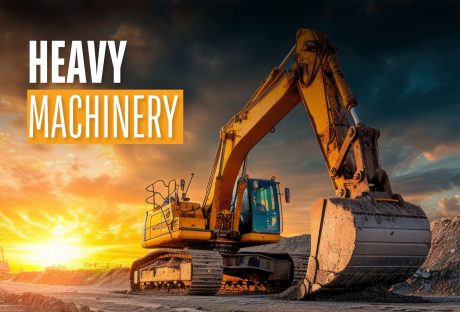When seeking investment opportunities, there exist numerous options to allocate your funds. Investing in assets such as stocks, bonds, traded funds, mutual fund investments, and real estate can be beneficial regardless of one’s level of knowledge.
The strategy you select will be based on your desired level of involvement in your investment, the amount of start-up capital you possess, and your risk tolerance.
The ultimate goal of any prospective investor is to witness a consistent increase in the market value of their holdings. Greater returns are achieved with higher values. For certain individuals, investing entails more than simply accumulating wealth. It involves enhancing their standard of living and capitalizing on the appreciation of their investments to safeguard what’s to come.
The real estate market is one that often sees a rise in investors’ wealth over time. In recent years, the high-end real estate market in Dubai has experienced significant growth, attributed to the cutting-edge developments in property development and the city’s exceptional facilities. – Speaks, HRG Investment.
Undoubtedly, Dubai has been a prominent choice for investors in real estate for several years owing to its economic strength, tax-exempt status, and diverse cultural surroundings.
Reasons To Consider Investing In The Real Estate Industry In Dubai, United Arab Emirates
The real estate market in Dubai is recognized as one of the most lucrative worldwide, topping marketplaces such as London and New York in terms of yield.
Currently, there is an upsurge in curiosity among customers and investors in the real estate property industry in Dubai, which is expected to lead to sustainable, long-term development.
There are three notable advantages to establishing a real estate enterprise in Dubai. Investors can benefit from a consistent, foreseeable, and uninterrupted stream of income in a prosperous and steady economy.
Furthermore, Dubai presents exceptional investment returns, tax benefits, and diversification of investment opportunities. Lastly, due to the significant increase in demand worldwide, it is anticipated that the real estate industry will experience substantial expansion over the coming years.
Structures Of Real Estate Companies In Dubai
There are four distinct types of business structures available for investment in real estate brokerages in Dubai.
The available business structures are
- Limited Liability Company
- Sole Proprietorship
- Civil business
- Free Zone setup.
The Following Types Of Paperwork Are Essential When Setting Up A Real Estate Enterprise In Uae.
- Please submit a signed application form along with a business plan.
- Please provide replicas of the passports for the shareholder, every owner, and supervisors.
- Requesting the original NOC certificate.
However, you must perform thorough planning, research, and due diligence. This comprehensive guide aims to provide you with all the essential information you require before investing in the property market in Dubai.
Research :
Conducting comprehensive market research is essential before making any investments in Dubai’s real estate market. This entails analyzing prevailing trends, pricing, consumer demand, and the availability of real estate within your desired location.
Selecting An Appropriate Location:
Dubai is a sprawling metropolis comprising diverse neighborhoods, each possessing distinctive attributes and facilities. Selecting an appropriate location that aligns with your investment objectives is crucial when considering purchasing property in Dubai’s real estate marketplace.
Type Of Real Estate:
Residences, condos, town homes, and business premises are available on Dubai’s residential market, which offers a variety of property types. Kindly select the correct property category.
When selecting an appropriate property type, it is crucial to take into account various factors, including but not limited to your financial plan, investment objectives, geographical location, and potential rental income.
Financial Alternatives:
Investing in the real estate market of Dubai necessitates substantial capital, and several investors may necessitate financial alternatives. Dubai’s financial institutions provide a range of financing alternatives.
Conducting thorough research on possibilities for financing, rates of interest, and terms of repayment is crucial before selecting a payment option.
Legal Structure:
Understanding the rules and regulations is a prerequisite for purchasing property in Dubai’s real estate marketplace. The Dubai Land Department (DLD) and the Real Estate Regulatory Authority (RERA) administer Dubai’s real estate regulations. It is imperative to comprehend the legal prerequisites, records, and processes associated with the purchase and sale of real estate in Dubai.
Opting For The Appropriate Developer:
Opting for the appropriate developer is of utmost importance while investing in Dubai’s real estate sector. Dubai boasts numerous esteemed developers who provide premium characteristics with appealing returns on investment.It is important to do a lot of study on the past, reputation, and cash flow of the growing business.
Tax Implications:
Dubai provides a tax-free environment, rendering it a desirable location for property investments. It is imperative to thoroughly evaluate the tax implications before investing in Dubai’s real estate market.
Effective Property Management :
Effective property management is crucial for maximizing returns on your investment in Dubai’s housing market. The scope of real estate administration encompasses various tasks such as managing tenants, collecting rent, performing upkeep, and ensuring the upkeep of the property. It is imperative to select a reputable real estate management firm that can effectively manage the property and guarantee a favorable rental return.
Choose Investment Group To Manage Your Real Estate:
In the last ten years, the UAE has grown quickly, making it an appealing destination to spend.
Investing has been a part of life’s preparation for a long time, from saving money to making investments in funds all over the world. But it can be hard for both new and skilled buyers to find help that fits their individual or company needs. Still, there are numerous companies and advisors on the market today that you may be unsure which ones are value spending time with. To avoid losing money, choose the right Investment Group to manage your real estate.
FAQ:
What Are The Differences Between Direct And Indirect Real Estate?
Investments in real estate entail the acquisition and active management of physical properties. Making investments combined that manage and own real estates, such as Real Estate Investment Trusts (REITs) or real estate crowdfunding, is commonly referred to as indirect real estate investment.
Would Investing In A Property In Dubai Be A Sound Financial Decision?
Dubai’s absence of property taxes and growing population render it a favorable destination for investment.
Is The Real Estate Industry A Profitable Venture In Dubai?
Dubai presents a higher rate of return on property investments compared to renowned cities like London and New York.
Is It Possible For Individuals Of Indian Nationality To Invest In Real Estate In Dubai?
Indian citizens are legally permitted to purchase property in Dubai, and for several years, they have been among the top nations investing in the city’s property market.
Read Also:
- What are the Best Real Estate Seller Leads?
- 6 Expert Tips on How to Sell Your Own Home Fast
- Choosing a Mortgage Broker for Your Home Loan Application























